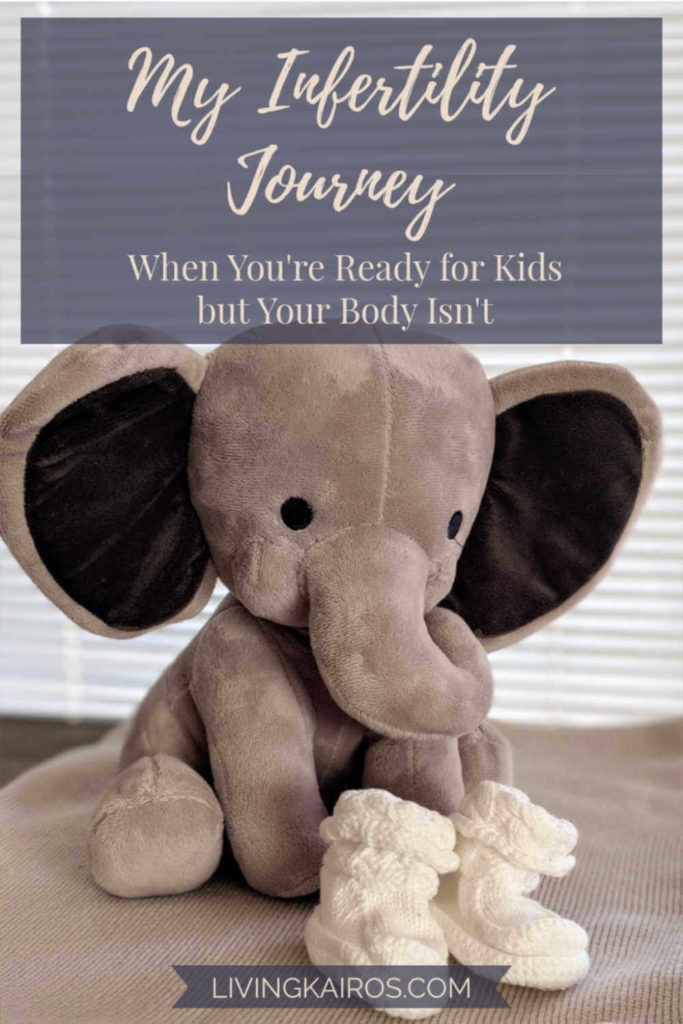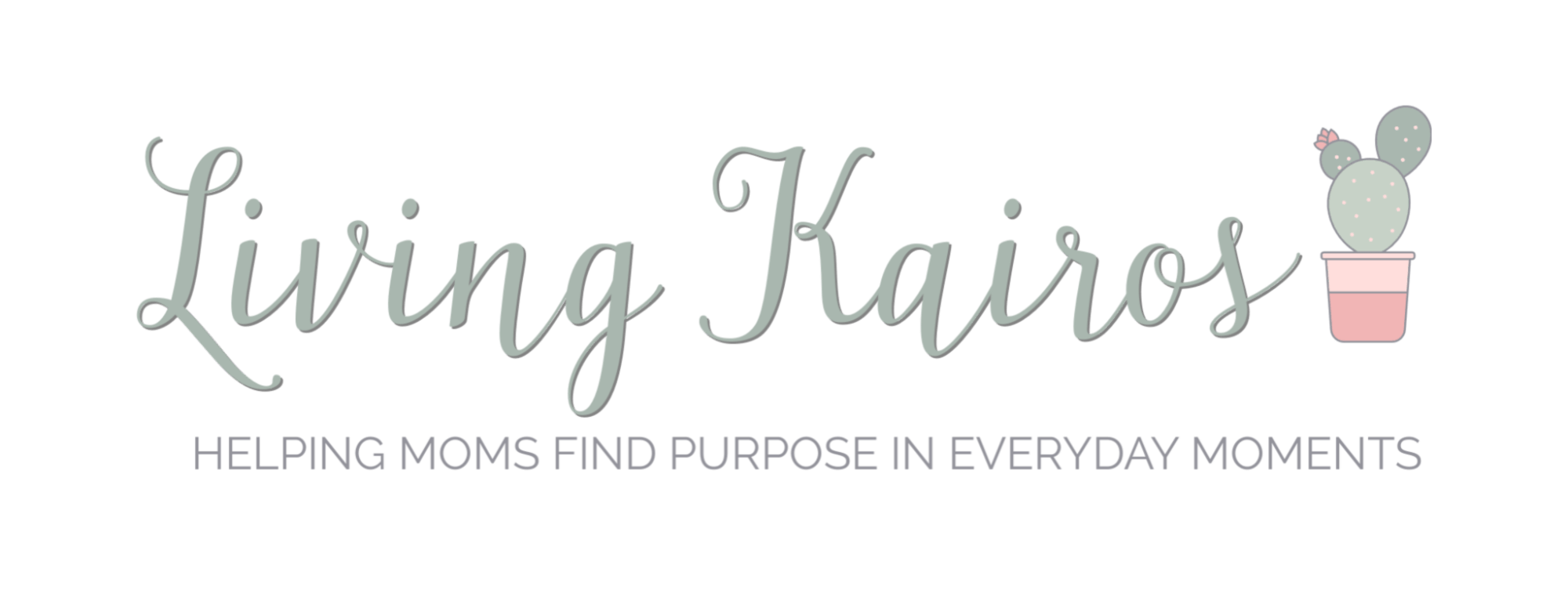I never understood what an infertility journey really consisted of until it happened to me. I always assumed conceiving and growing my family would be easy. And for most people, I guess it is. But not for me.

When my husband and I married, we decided we wanted to wait five years before trying to have kids. But after three, we knew we were ready. We both had good jobs, a house, a few dogs and cats running around, and so much love to give. We struggled a bit financially, but our families encouraged us, “If you wait for the perfect time to have kids, you’ll never end up having any at all.” So we took the plunge and I got off my birth control.
But something was wrong
We naively assumed we’d be pregnant in a few months. People get pregnant all the time, right? But a month after stopping birth control, something was wrong with my cycle. I figured it was just my body adjusting to the hormonal change; after all, I had been on birth control for quite a while at this point.
After six weeks, I went to see my primary doctor. She tried a couple things to get my hormones to stabilize, but nothing helped. This doctor referred me to an OB-GYN, who also tried different medications, to no avail. She had an idea of what the problem might be, but referred me to a fertility specialist for further testing.
My infertility journey: the diagnosis
As I sat in the waiting room with my husband, I remember thinking, “This cannot be happening to me. I’m twenty-seven years old. Other people need fertility treatments, not me.” After a couple appointments and several invasive tests, I was told that I had Polycystic Ovarian Syndrome (or PCOS), endometriosis, and a bicornuate (heart-shaped) uterus.
On their own, each of these diagnoses would not necessarily be a huge problem, but combined? My chances of conceiving naturally were very slim. Among other things, living with PCOS meant that my body doesn’t ovulate on a regular schedule. Some cycles would last a few weeks, others several months. Endometriosis meant that there is weblike scar tissue in my uterus that could prevent sperm from implanting on my uterine wall. And my heart-shaped uterus meant that even if a sperm did implant, the pregnancy could end in miscarriage.
The situation seemed hopeless. I spent days and nights crying and asking God why this was happening to me. I grew withdrawn and depressed. My poor husband tried his best to comfort me, but there was no way he could understand what I was going through or feeling.
A whole new way of life
According to the doctor, my biggest, most immediate problem was the PCOS. If I didn’t ovulate regularly, there was very little chance of conceiving. He suggested I try a low-carb diet because women who have PCOS have a resistance to insulin. A diet lower in carbs (and therefore, sugar) could help regulate my cycles.
Despite the fact that I received this instruction right before the holidays, I threw myself full-force into a low-carb lifestyle. My husband, the incredibly supportive man that he is, committed to doing it with me. I researched several programs and discovered the keto lifestyle. Essentially, we consumed between twenty and forty carbs a day.
Low-carb is hard
Now let me tell you, I love carbs. I love pasta, bread, potatoes, rice, and all the rest. Like many American families, a basic meal growing up consisted of a protein, veggie, and a starch of some sort. As an adult, I recognized that there were “good carbs” and “bad carbs,” and tried to stick with the good ones as much as possible.
But I had no idea that as a woman with PCOS, it’s not really an issue of “good” or “bad” carbs for me; it’s just carbs in general. So we began mercilessly slashing them out of our diet. I honestly doubt I possessed the willpower to give up biscuits, mashed potatoes, and pasta if I didn’t think it would help me get pregnant. So we began livin’ la vida low-carb.
An infertility journey is an emotional struggle
Through all this, I continued to struggle with the why of this whole situation. Infertility is one of those things that few people understand unless they’ve actually experienced it. Even my own husband couldn’t truly grasp how I felt despite wanting a child as much as I did.
I felt like I let him down because my body couldn’t do what it was supposed to. I lost my self-confidence; I felt broken and inadequate.
Every new pregnancy or birth announcement that showed up on my Facebook feed sent me to tears: fetal-position, body-shaking, mascara-running-down-my-face sobs. It’s not that I wasn’t happy for my friends and family members who were pregnant and having babies. I just couldn’t understand why it couldn’t be me. Why can teenagers get pregnant with a baby they didn’t even want when that’s all I wanted? How could women have more children than they could afford to take care of when I longed to have just one?
Don’t give up
After a lot (a lot) of prayer from so many amazing people in our families, church, and community, we were blessed to announce our pregnancy. Our Little Man was born healthy and to term, and he is absolutely perfect. He’s our miracle baby, proof that the doctors can say whatever they want but God can do mighty things in His timing.
There is so much more to say about all this, but it will have to wait for another post. If you’re on an infertility journey, I just want you to know that you’re not alone. Don’t try to deal with it all by yourself. Reach out to others who have gone through it and let them love on you. Don’t push your family and friends away because you feel like they don’t understand.
Most importantly, know that you are strong enough to make it through this infertility journey. I want to encourage you, dear sister, to not give up hope. If God has placed the desire for a child in your heart, you can bet that He will deliver. It may be in nine months or it may be in nine years, but please don’t lose faith in His promise. You are not alone in this infertility journey.



This story hurts my heart. My best friend also struggles with pcos, and all she ever wanted was to be a mother. I think the struggle is more common than most people realize. I’m sorry you went through this, but very VERY glad you have such a little cutie now! This is good encouragement for other women struggling with infertility.
Thank you so much for reading, Nicole! I’m so sorry about your friend. Please let her know she’s not alone and I’m praying for her. It’s really crazy to me how common PCOS is, but also how often it’s misdiagnosed. There’s always hope!